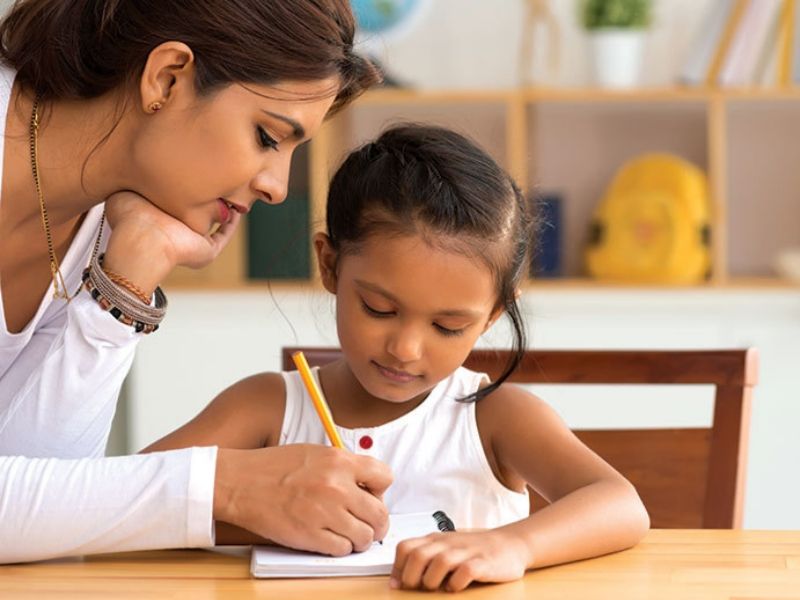
Parental Involvement in Online Learning of their Child
Parents have a significant role in their children’s education since a major chunk of the learning process happens during self-learning and the time spent at home. It is the parents responsibility to take an active role in their children’s learning process, analyse their strengths and weaknesses, and guide them. This can only be done with teachers and parents collaborating.
The same applies to online learning as well, since the online method is newer, more vulnerable and prone to distractions. In this blog, we will explore how parents can stay involved in their children’s online learning experience.
How to stay connected to your child’s online education
Even today, many parents are under the assumption that their children’s education is completely the teacher’s responsibility, but this is far from the truth since parents’ involvement and support are pivotal to the success of their virtual studies.
A study shows that there is a direct correlation between parents’ involvement and student success, and the greater the parents involvement, the better the grades. Below are some active steps you can take to get the process started:
Creating a supportive environment for learning
One of the major ways parents can contribute to their child’s online learning experience is by creating a supportive and conducive learning environment at home. This could mean setting up a designated study space, ensuring the necessary resources are readily available, and minimising distractions.
When parents actively participate in creating this environment, they send a powerful message to their children about the importance of education.
Parents and teachers—the collab everyone needs
It is essential for parents to maintain regular and open communication with teachers. This is to make sure the parents are updated about their children’s progress, where they are lacking, and how they can pitch in to help their children.
While teachers are responsible for the learning process, a major part of this picture is self-learning and recollection, which play a more important role in the learning process. This is where parents need to step in, through doubt-clearing sessions, tutoring, and helping with assignments and homework. Especially because online learning can be isolating at times and they can miss the social interaction offered by traditional schools. Also, if they do not receive the necessary support, they might lose interest in studying. It is important for parents to celebrate their victories, be there for them, and pay attention to their feelings.
Establish a Routine
Online learning often includes a lot of self-study and active participation from the students, which demands more self-discipline and responsibility than traditional schools. Parents can help teachers by actively participating with their children and helping inculcate these attributes.
Parents can help their children create a schedule that incorporates time for study, play, and other creative endeavours.
This ensures students complete their work on time and also develops important skills like time management, responsibility, independence, and organisational skills.
Motivation and Encouragement
Parents need to be rocks for their children, always being there for them, whether it’s for a play, a race, or the midterms. Parents need to play multiple roles as cheerleaders, guides, role models, and even friends. When they feel down, sit with them and listen to what’s going on because we all want to be heard, and so do our children. When they step out of the line, parts need to be the strict teachers who guide them down the right path.
Attend school events and programs
Showing up for events and programs at school can get children excited.
Benefits of Parental Involvement in Children’s Education
Higher scores
It has been observed that children with parents actively involved in their education have shown better improvement in their scores. This can be because of several reasons. When parents are actively involved, children feel more responsible for themselves.
Improve social skills and behaviour
Since online education lacks real-world engagement and exposure, it can result in children not developing the necessary social skills and behaviours, but with the parents’ involvement, this end can be avoided to a major extent.
Reduced Absenteeism
Students are less likely to skip schoolwork and classes when their children are actively involved in their day-to-day activities. This ensures students meet the deadlines on their homework, assignments and other activities.
Children need their parents’ support even in traditional education methods, which have existed for decades and even centuries. So, we can only imagine the amount of support and guidance they would need with a form of education only a few years old.
In today’s world, it is easy for parents to get caught up with work, deadlines, and bills and often end up not being able to spend time with their children. Parent-child time is essential for their development. So parents need to be more proactive and prioritise their children’s education.

